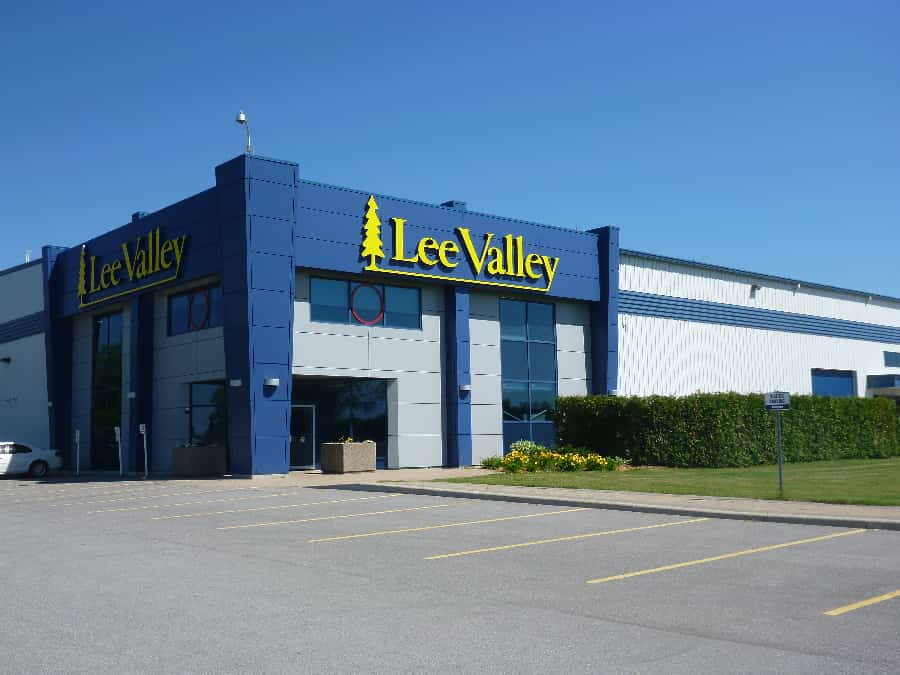When Lee Valley Tools overhauled its website in 2019, Jason Tasse and the rest of the Ottawa company’s management team braced for the inevitable backlash from customers who would have to click through a new-look online store to buy their gardening implements and woodworking equipment.
But any resistance to the revamped format was short-lived.
Within months, COVID-19 turned “backyard birding into the No. 1 sport,” in Tasse’s words, and cooped-up Canadians from coast to coast suddenly couldn’t get enough of Lee Valley’s vast assortment of planers, saws and other implements as they took up hobbies like woodworking, gardening and crafting en masse.
OBJ360 (Sponsored)

Techopia Live: How startups can leverage SR&ED to boost cash flow and accelerate growth
Are you a tech startup that is starving for cash? Or are you an established company that is doing innovative research? How would you like to receive tens of thousands

Smooth moves in the modern service era
A veteran of the Royal Canadian Navy, Darren Hawco’s life in the Canadian Armed Forces brought him from coast to coast, with command postings at sea, to top level positions
Riding the DIY wave, Lee Valley racked up double-digit revenue growth in 2020 and 2021. And the sales spike hasn’t really slowed down since, says Tasse, the family-owned firm’s president and chief operating officer.
“Our volume picked up throughout the pandemic, and the momentum has continued for us, which is really nice,” he explains.
Founded 45 years ago by former public servant Leonard Lee as a mail-order business that sold do-it-yourself stove-making kits, Lee Valley Tools has evolved into a sales and manufacturing powerhouse with 18 retail stores in seven provinces, 1,000 employees and annual sales well in excess of $100 million.

The online side of the enterprise had already begun to take off even before the COVID-19 crisis shuttered brick-and-mortar stores and drove buyers online – hence the company’s “digital transformation” in the months before the virus struck.
But Lee Valley found another gear during pandemic-fuelled lockdowns, targeting a captive audience for its 800-plus traditional products as well as new offerings like kits that include all the tools and accessories for customers to carve their own wooden spoons or make their own cribbage boards.
Whereas 60 per cent of the company’s revenue came from brick-and-mortar sales before the pandemic, the scale tipped heavily in favour of e-commerce during the height of the COVID-19 crisis. Lee Valley ultimately shut down two stores in the Greater Toronto Area, citing the “changing nature of the trade area and unsustainable rent increases.”
Since then, the pendulum has swung back in the other direction, with online and in-store sales now each accounting for about half of Lee Valley’s revenues. But even as the company’s overall sales keep rising, Tasse says it’s not content to rest on its laurels.
Lee Valley’s local headcount has jumped from 450 to more than 600 since 2018, with the firm adding nearly 100 manufacturing employees in the last two years alone.
To accommodate that growth, Lee Valley is investing $5 million in new technology that will use robots to pluck items from specially designed bins at its 150,000-square-foot warehouse and manufacturing plant on Carp Road and deliver them to employees for shipping.
The high-tech system, from Norwegian firm AutoStore, will allow Lee Valley to condense its existing 31,000 square feet of warehouse space at Carp Road to about 8,000 square feet as bulky shelves are replaced with more compact storage containers.
“The cost for seasonal labour, given its scarcity, is becoming real challenging for us. The economics have changed.”
Jason Tasse – president and chief operating officer of Lee Valley Tools
The technology, which is slated to be installed next spring, will open up more space for expanded manufacturing capacity. At the same time, it will relieve pressure on the firm to bring in extra warehouse staff at peak periods like Christmas and spring planting season, Tasse explains.
“It’s pretty difficult to find people now,” he says. “The cost for seasonal labour, given its scarcity, is becoming real challenging for us. The economics have changed.”
Meanwhile, Lee Valley is pouring an additional $5 million into upgrading its manufacturing facilities at Carp Road and Morrison Drive. The firm is buying new equipment, adding a second machine shop and bolstering the electrical infrastructure at both buildings as it looks to boost its production capacity.
Tasse says that while Lee Valley remains as committed to brick-and-mortar retail as ever, he believes e-commerce will be the largest driver of new sales over the long haul. The company’s goal is to eventually generate 60 per cent of its revenues online, up from the current 50 per cent and the exact inverse of its pre-pandemic ratio.
“The challenge is sifting through the noise of artificial conditions like lockdowns to see where your true potential is,” Tasse says. “We see all these investments as solidifying our foundation and strengthening our roots here in Ottawa.”





